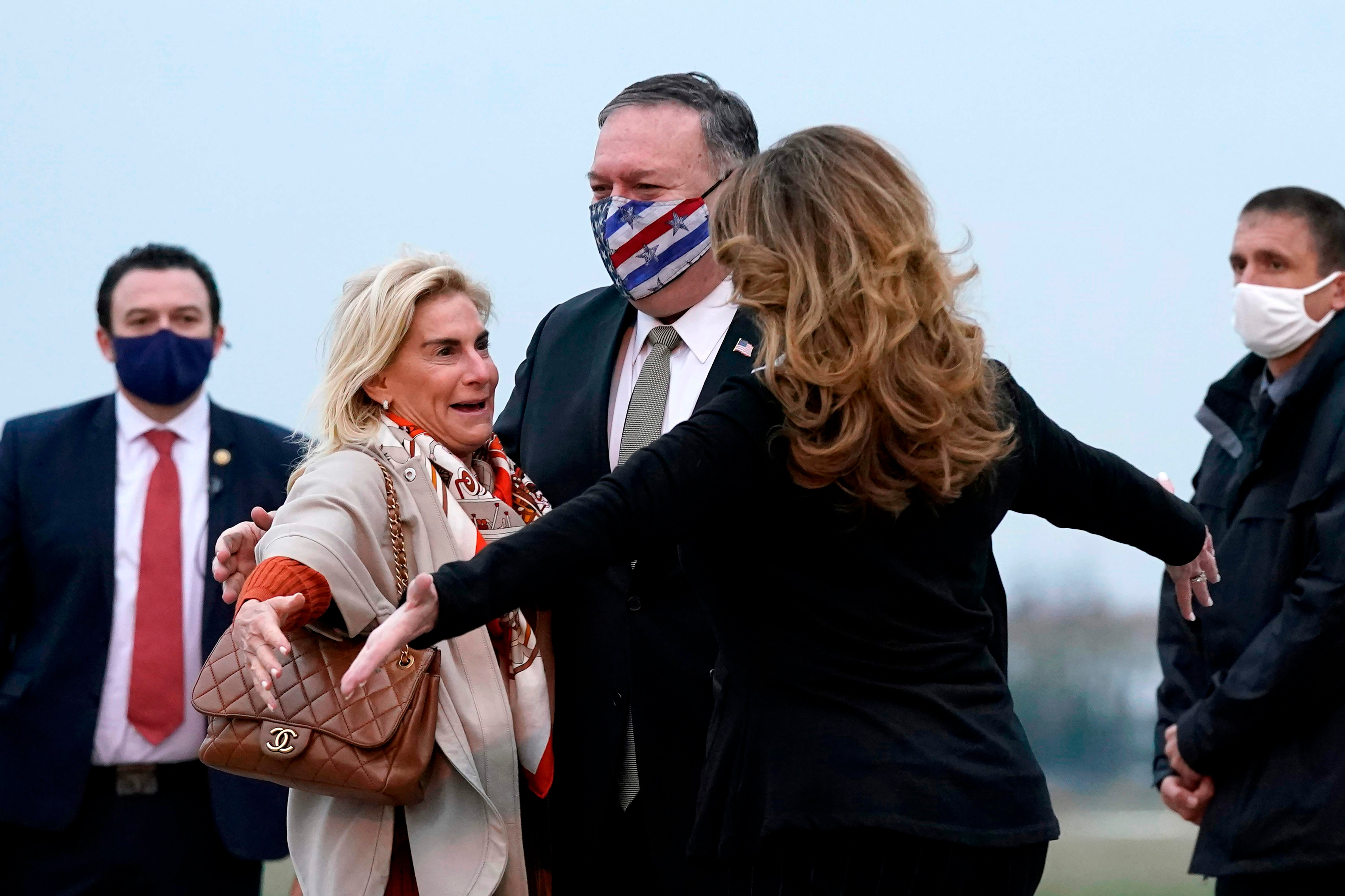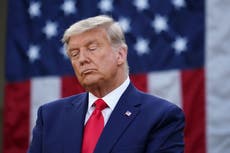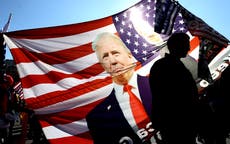Mike Pompeo’s awkward seven-country tour could do more harm than good
All the countries on the itinerary are allies of the US and, at the end of the day, they will come to an accommodation with the new administration, writes Kim Sengupta


Mike Pompeo is now on what must be one of the most surreal official international trips undertaken by a US secretary of state in recent times.
After refusing to accept that Donald Trump has lost, and saying there will be a “smooth transition” to a second term during a recent press conference, Pompeo will be visiting seven states all of which have congratulated Joe Biden on his victory and stressed their desire to work with the new administration.
The departing secretary of state has made frequent trips in his two years in office. The latest one, lasting 10 days, includes France – where Pompeo has already arrived – Turkey and Georgia, before Israel, the UAE, Saudi Arabia and Qatar in the Middle East.
It could be that Pompeo’s remarks about Trump’s second term were ironic. And perhaps, considering what is happening in the US, he was also being ironic when criticising electoral problems in Belarus, Tanzania and the repressive acts in the Hong Kong legislature by the Chinese government.
Or perhaps he does not do irony. Pompeo’s answer when asked by a journalist whether US credibility has been damaged by Trump’s unproven claims about electoral fraud was: “You asked a question that is ridiculous. This department cares deeply to make sure that elections around the world are safe and secure and free and fair, and my officers risk their lives to ensure that happens.”
Despite saying in a radio interview after that press conference “on 20 January, we’ll have a transition, whether it’s to a Trump administration – a second Trump administration as I spoke about today – or to an administration led by former Vice President Biden” Pompeo’s State Department has not cooperated with Biden’s transition team, and has not even facilitated the president-elect’s calls to foreign leaders.
The purported reason for Pompeo’s trip is to discuss security issues. His recent visit to Asia was an attempt to build an alliance against China, this one will focus on one against Iran. There are, however, fundamental differences between the two scenarios.
There is broad consensus among many democratic states in Asia about the threat being posed by China’s hegemonistic policy and the need to counter it. We saw, for example, an agreement between Japan, Australia, India and the US to hold the Malabar naval exercises, the first time all four countries have taken part in a decade. We also saw that in the decision by Australia and Japan this week to sign a defence treaty.
But most crucially, countering China will be one of the priorities of the Biden administration. Indeed, there is more certainty of it being a plan that will be stuck to, rather then being subjected to the flip-flops under Trump that were highlighted with North Korea – where threats of “fire and fury” from Trump turned to letting Kim Jong-un get on with his missile programme.
Trump had claimed to have taken firm action against China on coronavirus when he, in fact, praised President Xi Jinping and China on its efforts to control the pandemic 15 times in six weeks when it was already clear that Beijing was downplaying the disease. Trump had falsely accused Joe Biden of making money out of China while, it has been revealed – according to reports of bank and tax records – he had himself paid more taxes to China through his business ventures between 2013 and 2015 than he did in the US between 2016 and 2017. Trump, according to his former national security adviser John Bolton, asked Xi to help him win the election by buying American farm produce; China duly obliged.
It is very different when it comes to Iran. France is among the signatories of the nuclear deal with Iran – along with Britain, Germany, Russian and China – seeking to keep it going after Trump pulled the US out. The three European states have set up a monetary mechanism enabling companies to trade with Iran in the face of American sanctions.
In the Middle-East part of the tour, Israel, Saudi Arabia and the UAE are fervent proponents of punitive measures against Iran. Qatar, on the other hand, is involved in a prolonged confrontation with Saudi Arabia and UAE, and has built friendly relations with Iran which helped during the Saudi blockade.
The Trump administration is expected to impose a tranche of new sanctions on Iran during its last months and Pompeo is expected to tell the Gulf states that the policy of “maximum pressure” on Tehran will continue.
There is, however, every expectation that Biden will try and revive the Joint Comprehensive Plan of Action (JCPOA) Iran deal which was hammered out while he was vice president, with then-secretary of state John Kerry playing a key role in getting it past the line.
There will undoubtedly be lobbying from the Israel and the Saudis for the new administration not to rush to rejoin the JCPOA although that may not happen immediately at any rate with the developments which have occurred in recent years.
The fact remains that all the countries in Pompeo’s itinerary are allies of the US and, at the end of the day, they will come to an accommodation with the new administration. The tour by the departing secretary of state will not change that outcome.




Join our commenting forum
Join thought-provoking conversations, follow other Independent readers and see their replies
Comments